
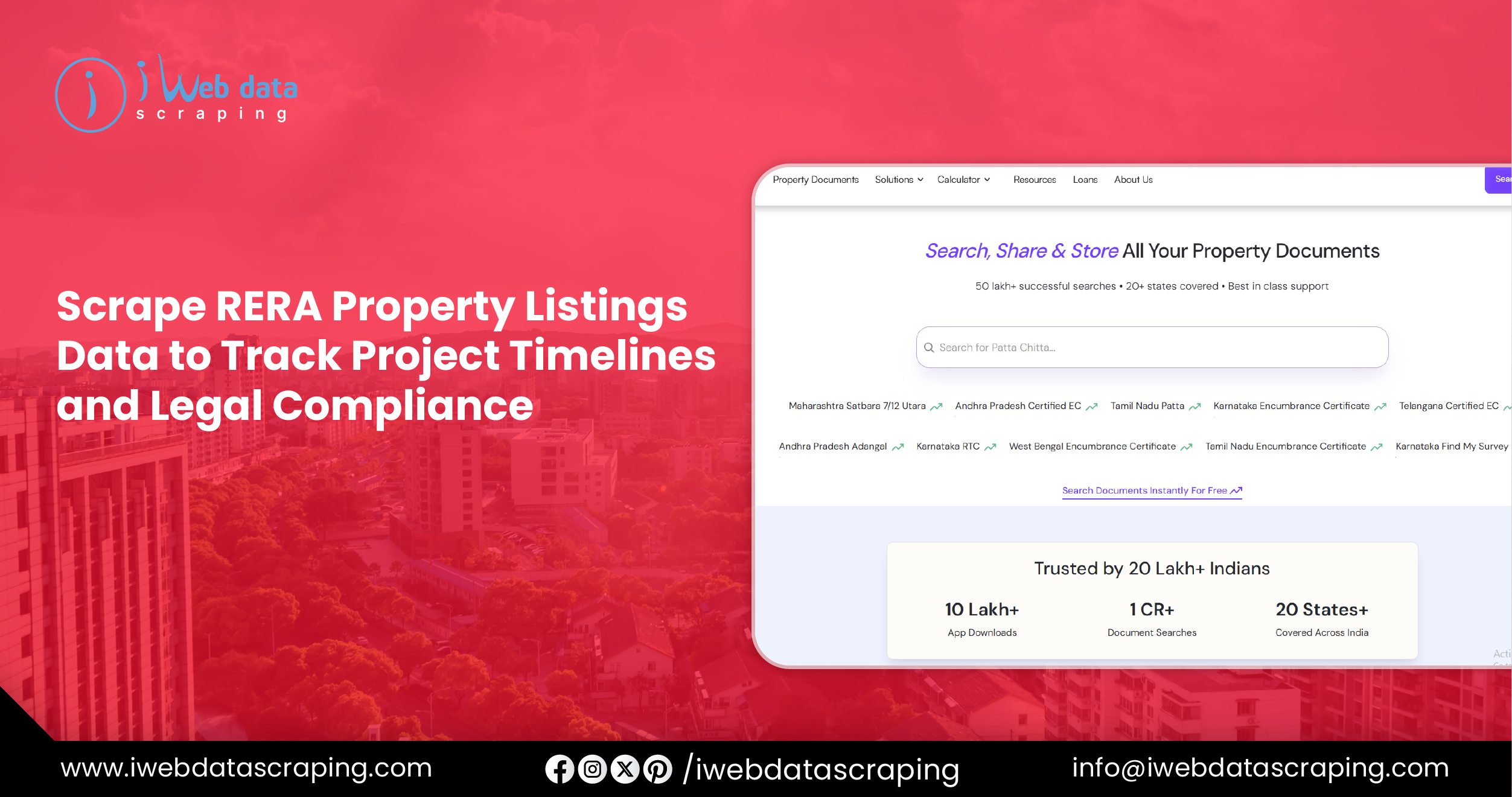
The Real Estate (Regulation and Development) Act, 2016 (RERA) in India, has transformed the real estate sector by promoting transparency, accountability, and consumer protection. RERA mandates that all real estate projects and agents be registered with state-specific RERA authorities, with detailed project information publicly available online. These portals are a goldmine of structured data, including property details, developer information, project timelines, and legal compliances. Scrape RERA Property Listings Data to access this valuable information programmatically for analysis, market research, or business intelligence. This report explores the significance of RERA data, its applications, challenges, and ethical considerations, supported by sample data tables to illustrate the extracted information. Organizations looking to Extract RERA Real Estate Data can leverage automated tools to gain competitive insights and track industry trends. However, ensuring compliance while performing Web Scraping RERA Approved Projects Data is essential for legitimate and ethical use.
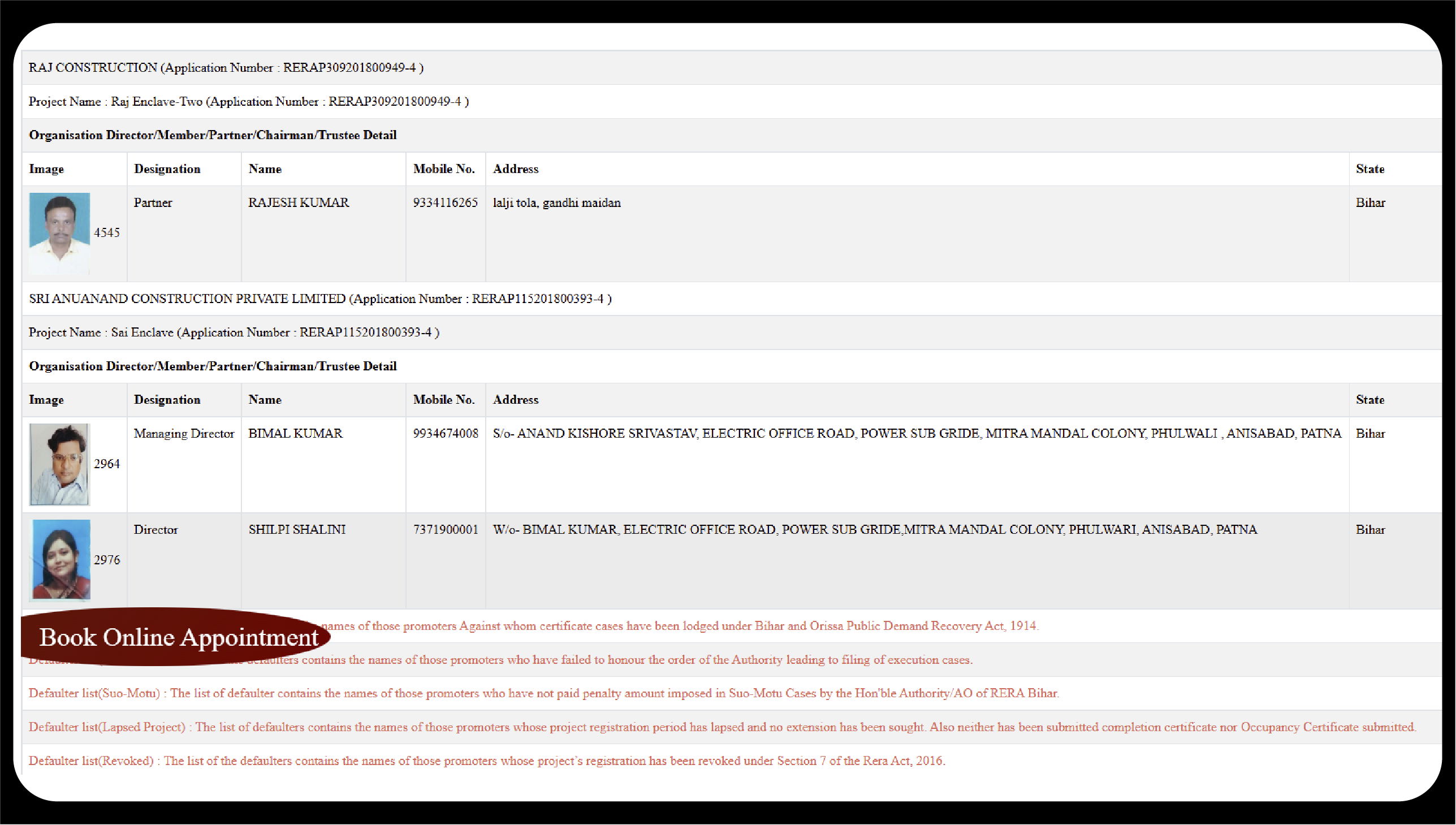
RERA portals, such as those managed by state authorities like Maharashtra RERA, Karnataka RERA, and others, provide comprehensive details about registered real estate projects. This data includes project names, locations, developer credentials, construction status, pricing, amenities, and legal documents like commencement and occupancy certificates. For stakeholders—homebuyers, investors, developers, and policymakers—this information is critical for informed decision-making. Many organizations aim to Scrape RERA Registered Builders & Agents Data to understand developer history and agent activity across regions. Scraping RERA data enables the aggregation of vast datasets that can reveal market trends, such as the number of projects launched in a region, average property prices, or delays in project completion. Real estate firms use this data to benchmark competitors, identify high-demand areas, and tailor marketing strategies. Investors leverage it to assess project viability while policymakers monitor compliance and sectoral growth. Academic researchers and data scientists also analyze RERA data to study urbanization patterns, housing affordability, and regulatory impacts. When firms Extract RERA Approved Housing Project Details, they gain actionable insights to inform strategic and operational decisions. Leveraging professional RERA Data Scraping Services ensures efficient, reliable, and structured access to this critical real estate information.
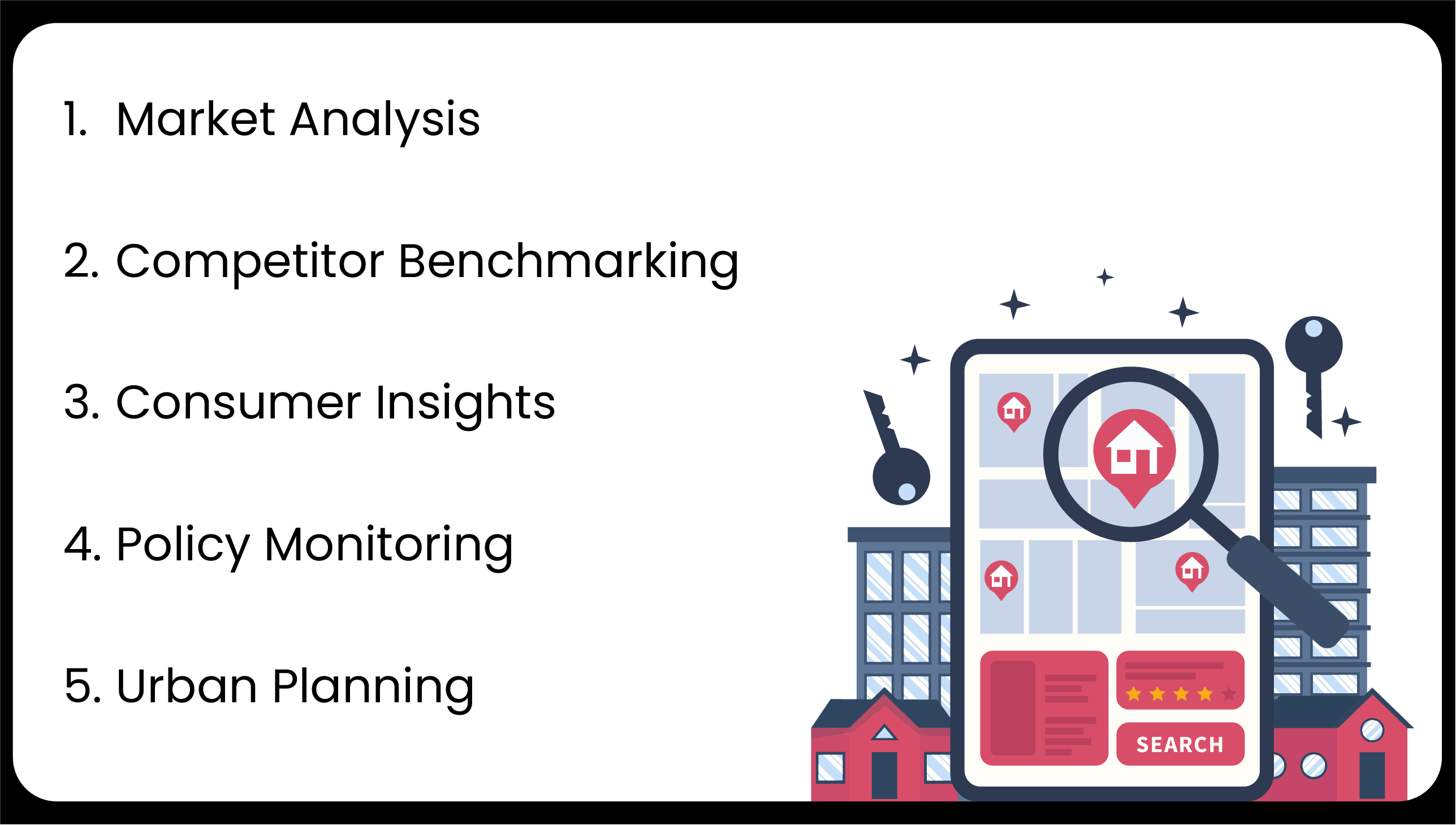
The applications of RERA property listing data are diverse and span multiple industries:
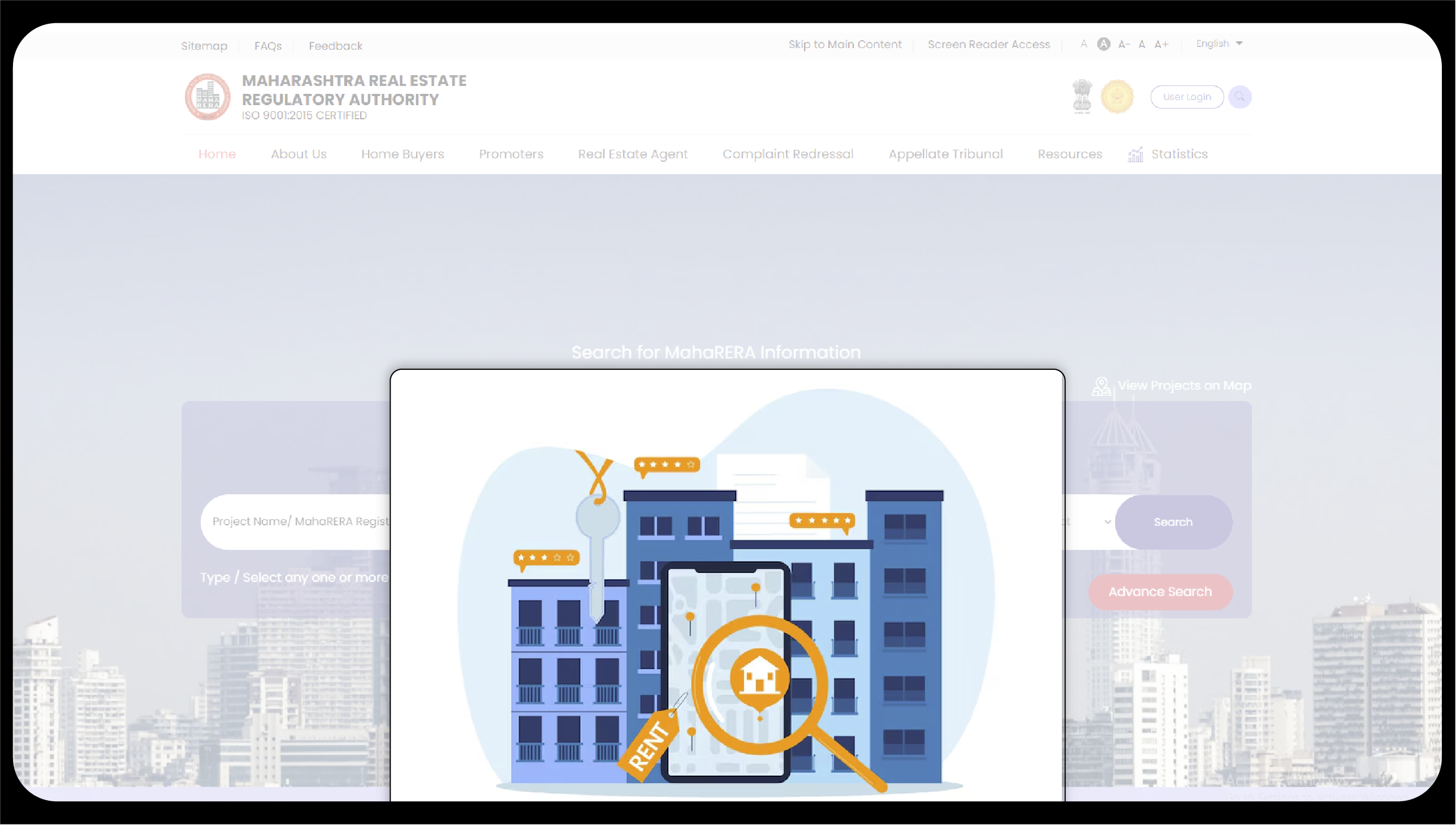
While RERA portals are publicly accessible, scraping their data presents technical, legal, and ethical challenges:

Ethical scraping of RERA data requires balancing utility with responsibility. Scrapers should respect the intent of RERA—to empower consumers and ensure transparency—by using data to benefit the public. This includes avoiding excessive server requests that could disrupt portal functionality, anonymizing sensitive information (e.g., developer contact details), and ensuring compliance with data protection laws like India’s Digital Personal Data Protection Act of 2023. Transparency about data usage, such as informing users how scraped data will be analyzed or shared, builds trust and aligns with ethical standards.
To illustrate the value of scraped RERA data, two tables with hypothetical yet realistic datasets extracted from a state RERA portal are provided below. These tables highlight key attributes commonly found in RERA listings and demonstrate potential insights.
Table 1 : Overview of Residential Projects in Bengaluru (2024)
| Project Name | Developer | Location | Total Units | Price per Sq. Ft. (INR) | Completion Date | RERA Status |
|---|---|---|---|---|---|---|
| Sunrise Residency | ABC Builders | Whitefield | 250 | 7,500 | Dec 2025 | Compliant |
| Greenview Towers | XYZ Developers | Koramangala | 180 | 12,000 | Jun 2024 | Delayed |
| Harmony Homes | PQR Realty | Electronic City | 400 | 6,200 | Mar 2026 | Compliant |
| Urban Oasis | LMN Constructions | Yelahanka | 320 | 8,000 | Sep 2025 | Under Review |
Insights from Table 1 :
Table 2 : Developer Performance Metrics (2024)
| Developer Name | No. of Projects | Total Units | Avg. Delay (Months) | Complaints Filed | RERA Compliance Rate (%) |
|---|---|---|---|---|---|
| ABC Builders | 5 | 1,200 | 2 | 10 | 90 |
| XYZ Developers | 3 | 600 | 6 | 25 | 70 |
| PQR Realty | 4 | 1,500 | 0 | 5 | 95 |
| LMN Constructions | 2 | 700 | 3 | 15 | 85 |
Insights from Table 2 :
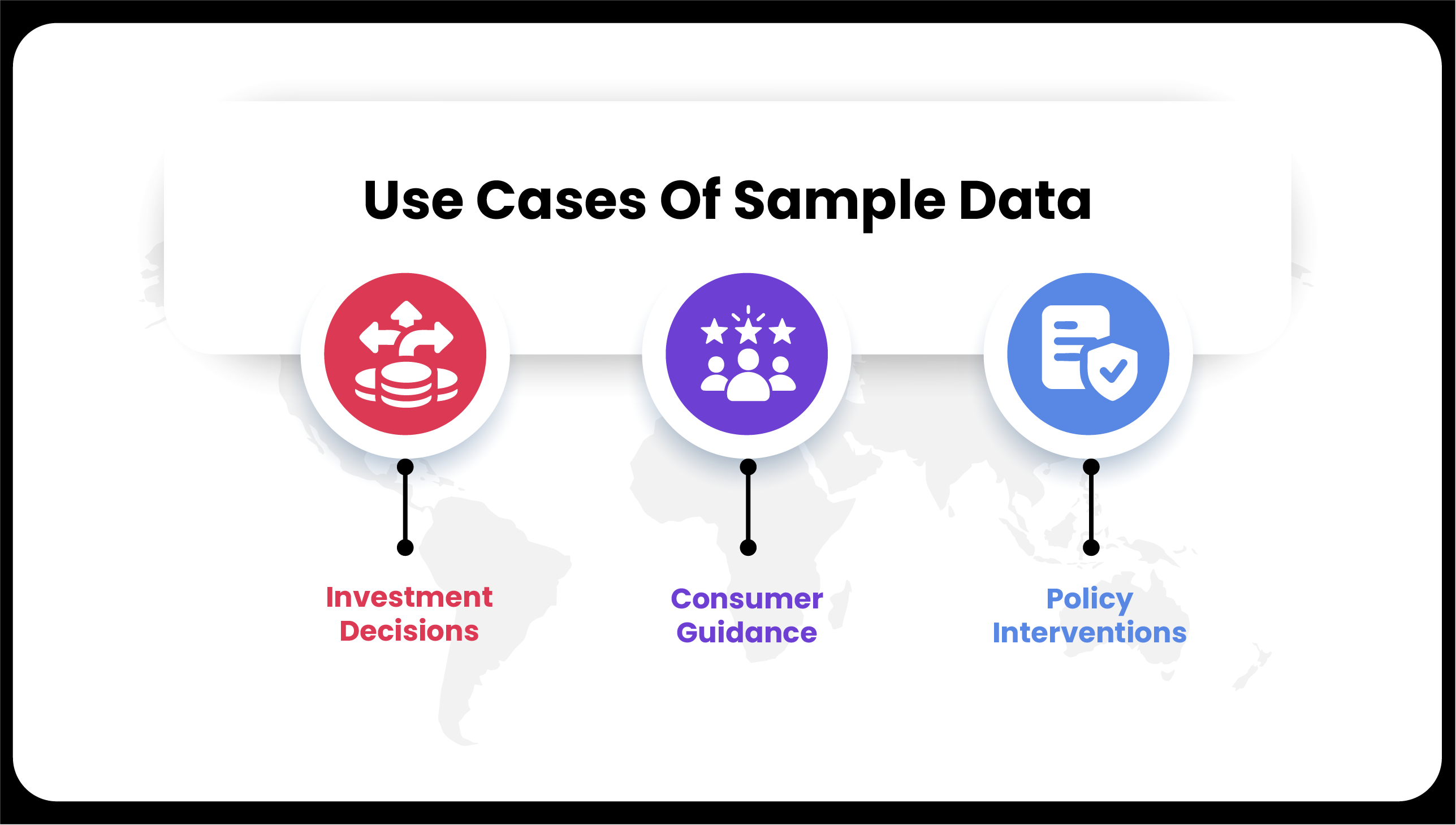
The data in Tables 1 and 2 can support various analyses:

Advancements in scraping technologies, such as AI-powered parsers and natural language processing, will enhance the efficiency and accuracy of RERA data extraction. However, as portals adopt stricter anti-scraping measures, scrapers must innovate to stay compliant while accessing data. Collaboration between RERA authorities and data providers could lead to official APIs, reducing the need for scraping and ensuring standardized, high-quality datasets. Such partnerships would benefit all stakeholders by streamlining access to valuable real estate information.
Scraping RERA property listing data unlocks many opportunities for understanding and navigating India's real estate market. From market analysis to consumer empowerment, the applications are vast, but so are the technical, legal, and ethical challenges. By adhering to responsible practices and leveraging insights from structured datasets, stakeholders can harness RERA data to drive informed decisions and foster a more transparent real estate ecosystem. The sample tables underscore the granularity and utility of this data, offering a glimpse into its potential to shape industry trends and policies.
Experience top-notch web scraping service and mobile app scraping solutions with iWeb Data Scraping. Our skilled team excels in extracting various data sets, including retail store locations and beyond. Connect with us today to learn how our customized services can address your unique project needs, delivering the highest efficiency and dependability for all your data requirements.
We start by signing a Non-Disclosure Agreement (NDA) to protect your ideas.
Our team will analyze your needs to understand what you want.
You'll get a clear and detailed project outline showing how we'll work together.
We'll take care of the project, allowing you to focus on growing your business.